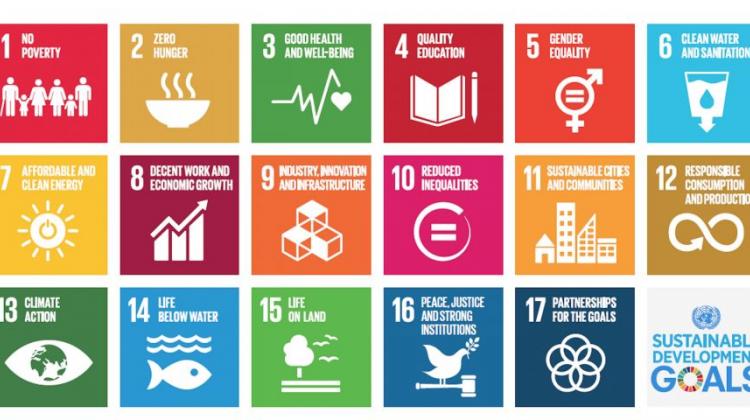3Q Interview with Nicholas Ashford

Conflicts in our current industrialized state allow glimpses of underlying sustainability challenges, that many argue are inherit byproducts of capitalism, globalization, and consumerism. From resource depletion; toxic pollution; climate disruption; eco-system destruction; disproportionate and unequal burdens of environmental impacts; and widening disparities in employment opportunities as well as earning capacity and economic inequality, the challenges are myriad and synergistic. Yet could the same drivers of the negative externalities of capitalism, technology and globalized finance be the mechanisms by which we reverse our current trajectory and repair the condition of the world?
In a revised edition of Technology, Globalization, and Sustainable Development: Transforming the Industrial State (Routledge, 2018) Nicholas Ashford and Ralph Hall explore how technology and an increasingly globalized economy could be the key to advancements in sustainability. The authors parse sustainability into three pillars: selective economic growth; health, safety, and environment; and meaningful employment with earning capacity and livable wages. Through deep analysis and reflection upon the connections between a wide range of critical issues, Ashford and Hall offer clear agendas for forwarding actionable pathways to forging a more sustainable, just, and optimistic future.
Ashford is Professor of Technology and Policy and the director of the Technology and Law Program at MIT. Evidence of his cross-disciplinary approach to research interests -- sustainability, trade and environment; regulatory law and economics; the design of government policies for encouraging both technological innovation, and improvements in health, safety and environmental quality; pollution prevention and cleaner/inherently safer production; labor's participation in technological change; and environmental justice -- can be seen in his appointments with the Sociotechnical Systems Research Center in the School of Engineering at MIT; the Institute for Work and Employment Research in the MIT Sloan School of Management; and the Environmental Policy Group in the Department of Urban Studies and Planning. His co-author, MIT PhD graduate Ralph Hall is an Associate Professor at the School of Public and International Affairs (SPIA) at Virginia Tech.
Q1 What is the most effective mechanism for implementing a more sustainable industrial state in the near future? And how might MIT students and alumni help push for more sustainability?
Ashford: We are so keen on continuing the unprecedented economic growth, which occured in the relatively short period of the last 200 years, but we often fail to recognize that growth was fueled by the cheap supply of energy, which at an end. We know that we urgently need to change the current industrial model, for climate change mitigation, the environment, and for social and working conditions- but how do we do that? Governance options are too underutilized. What we require is structural investment and stimulus of technological, organizational, institutional, and social innovation. We can’t rely on only the private or public sector to do this alone, it needs to be a combined effort. While the MIT community is an epicenter for technological innovation in the United States, it could do more in expanding and supporting other kinds of innovation, necessarily involving current/future leaders, both of private and public entities.
Q2 What is organizational capacity for change and how can we promote more capacity?
Ashford: Organizational capacity for change is the capability of an organization to respond to new context, adapt, and succeed. Capability is defined here as the raw human resources an organization can mobilize; codified structures and procedures that allow that human capital to be efficiently used; and, cultural norms that impart the plasticity for an organization to anticipate and respond positively to change. At institutions such as MIT, we can promote the development of more capacity for our community and for their future workplaces by emphasizing more transdisciplinary and integrated education, departing from the silo mentalities that have been fostered in current academic structures.
Q3 Given the interconnectivity of environmental sustainability, globalized markets, and trends in the nature of work, it is easy to feel overwhelmed by the complexity of trying to do no harm while advancing an idea or policy aimed at improving the global condition of the world. What advice would you offer to individuals who are passionate about addressing one of these core pillars of sustainability?
Ashford: Our current model of education, especially in the field of technology, lends itself to narrowing the scope of knowledge of students. To say that another way, we are training very specialized individuals who can solve complex problems but might not have the tools to creatively approach challenges outside of the problem-solving model they have learned. The nature of global problems requires solutions that have a multi-disciplinary approach. So, my advice is to broaden the nature of your educational experience, while you are still a student at MIT take courses outside of your school and field and when you graduate continue to utilize continuing education via online platforms.
Be reflective in your quest to make the world a better place. We hold many biases, some that we might not even be aware of. It is always productive to question what we are trying to achieve, what kinds of growth are sustainable, and why previous measures failed to move us towards that definition of sustainability.
We can’t afford to ignore distributional equity and, more broadly, general inequality in both employment and wealth when discussing sustainability. Discussions of sustainability often revolve around the physical changes to our environment and our response to the shock events that highlight those changes. Yet, we are missing a key component to the systems driving climate change and environmental exploitation if we fail to examine the distortions and inequality of the global and national financial systems. Solutions for global sustainability will not be siloed into artificially created academic divisions, we need creative, interdisciplinary, and holistic approaches.


